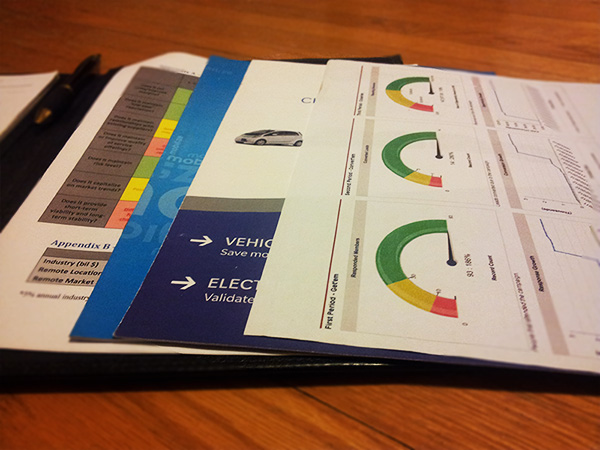The Story

On a bright sunny day, you come home to learn the following: out of a 1000 resumes that were submitted, yours got picked, and you now have an interview lined up for next week. Congrats!
But somewhere in between the leaping and the landing in your reactionary jump for joy, you realize that the hunt is still far from over; 9 other resumes were chosen along with yours. Even though you have overcome great odds up to this point (I'm guessing you submitted a wicked resume... COMING SOON), you're still only up to a mere 10%. While deep down you're cautiously optimistic, unless you're Lloyd Christmas from Dumb and Dumber, you're probably not feeling overly confident about your chances.
Nah shutup, you've got this. That night you take an hour to research the company, prepare a couple of safe and open-ended questions to cap off your interview ('take me through a regular day in the life of....'), rehearse your response to the inevitable "tell me a bit about yourself" question, and maybe even download one of the company's eBooks if you're good.
On the big day, you show up to the interview no less than 15 minutes early, have multiple copies of your resume tucked neatly into your shiny new padfolio, and are ready to give it your best shot. The interviewer calls your name, you stand up with a straight back, make direct eye contact, and offer a firm handshake with the hand that you've intentionally kept out of your pocket to ensure that it's at least not sweatier than the rest of your body.
You’re led into a seemingly dark room, and the rest is a blur. What feels like 3 hours later, you walk out of the room, relieved and maybe even a little excited. You did well.
But 2 weeks later, you get the dreaded call. While they greatly appreciate you coming out for the interview, they deemed that one of the other applicants was a better fit for the company.
Does this sound familiar? Maybe a little too familiar? If so, keep reading.
The Problem

While everything I mentioned above is absolutely necessary in order to make a good impression, there's a minor caveat: everyone is following the exact same script. Everyone has read the exact same ’10 tips on how to prepare for a job interview’ article that you read on about.com last night.
The reality is, unless your relevant experience is extraordinary, it's going to be tough for you to stand out. Luckily, the same can also be said for the other 9 applicants, as most of you will likely have a similar skill-set and a rivaling level of experience.
The employer will be looking to see what you as a person can bring to the table to differentiate yourself.. and while you think you have the biggest smile, the next applicant's is bigger.
The Answer

So I'm basically saying there's a 90% chance you're doomed, right? Not at all. The good news is, the secret to standing out in a job interview is the same as the secret to standing out in anything else, and it's exactly that: standing out. You need to do something different; something that most of your challengers won't do, and something that is unique to you (insert that 'poet and not knowing it' line here).
Battling head-to-head against the other applicants isn't cool. Setting the benchmark is. Instead of making the employer search for a reason they should hire you, show them why they can't afford not to.
How to Be Different

There are obviously hundreds of ways to be different. Some methods will work better than others, and a lot of it is dependent on the industry you’re in, the company you’re applying to, the person who’s interviewing you, and ultimately who you are as a person.
Through the privilege of being heavily involved in the process of hiring my replacement during my second coop term (one of the many benefits of working for a startup), I was able to discover a method of standing out that I found incredibly impressive. Here is a brief background:
After 3 days and having conducted nearly 20 interviews, we knew we finally found the one. The strange (and very important) part was, even though his level of relevant experience was on par or even below the rest of the applicants, we were quick to rank him #1 for the position. His interview was so memorable that despite ending up receiving and accepting an offer of employment from a larger company (not surprisingly), 2 years later and I can still recall the person’s name, work experience, and core skillset.
After the interview it was incredibly easy to decipher what made him stand out. It was so simple, so easy, and so obvious, yet no one else was doing it. It was at that moment that I quickly made note, and implemented it into my interviews where I saw an immediate impact. My next coop term I scored the position I aspired for most, a highly sought-after role at one of Waterloo's larger tech companies (don't worry, it wasn't Blackberry).
The Method

Bring in a physical representation of your work to the interview.
What? That's your big secret? I told you it would be simple. Let me explain.
For the position I was hiring for, part of the job description was doing some Search Engine Optimization on our company's blog. When we asked each applicant what their experience was working with SEO, their responses were usually similar: "I'm familiar with SEO as I worked on this and that, and I got the company to rank higher on these keywords that we were targeting." And that was an acceptable high-level response.
But Jonathan's response was different. He simply said: "let me show you." He proceeded to show us a couple screenshots of the keywords ranking on the first page of Google, a trend of how the keywords ranked over time, and the resulting effect it had on the website's traffic.
While the applicants who gave the first response had the same level of experience and were essentially conveying the same message as Jonathan, the choice could not have been easier. Jonathan's presentation simply stood out.
But how do I know what to bring or print out?
I think the best way to approach it is to ask yourself these two questions:
- What were my key tasks/accomplishments in my last job?
- What will they probably ask me about in this interview?
Once you've established what those are, start thinking about how you can turn them into tangible items. Some things will obviously be more difficult than others, but almost anything can be represented physically with a bit of creative thinking.
As an example, one of my key accomplishments during my coop term was running a webinar that had surpassed the targets we had set for it. A webinar isn't inherently something easily made tangible, but I knew featuring its results could be. I pulled up a simple salesforce dashboard summarizing the webinar's number of attendees, converted leads, and resulting revenue, and printed out a screenshot. I could now physically show my webinar.
Since I was applying for a marketing role, other items I included in my portfolio were a product brochure I had designed, a pamphlet for a conference I helped organize, and various Google Analytics screenshots showcasing the company's growth in organic traffic over time.
When one of the very first questions I got in my next interview was "tell me about this webinar you executed, and what were its results?," I knew I was in good shape.

Why is this method so effective?
Here are the top 5 reasons why I believe this method works so well:
- Allowing the interviewer to observe your previous experience makes you more credible. Most people will put a positive spin to anything they say in an interview, forcing the interviewer to make judgements on what they feel is an accurate depiction or not. Having a physical representation of your experience makes it that much more objective, and avoids the instance of the interviewer subconsciously discrediting your claims of accomplishment.
- Bringing in a finished product allows the interviewer to visualize your performance at their company. Most employers feel more comfortable hiring a candidate in which they know what to expect vs. hiring a wildcard. The better they can picture you fitting in and performing at their organization, the better your chances are.
- It shows you took the extra step in preparing for the interview. Employers are looking for candidates who go the extra mile, and having a physical portfolio demonstrates that you are serious about the position.
- It shows that you're results-oriented. Doing something and doing something well are two different things. If you are bringing something into an interview, it shows that you're confident in its end-result and have something that is presentable.
- It allows you to lead the conversation. In a couple of my interviews, after I showed the first item, the interviewer was keen to discover what else I had in my portfolio. This gives you an opportunity to highlight some of the things that you otherwise might not have had a chance to talk about. It also keeps the conversation more free-flowing, offering a subject for the conversation rather than having the interviewer fall-back to their list of generic questions (like "tell me about your biggest weaknesses" AHHHHH).
Final Thoughts/Disclaimers/Call for suggestions
Although this blog post has been based on my own limited personal experience, I hope it has provided you some insight on how to improve your approach to interviews.
The overarching lesson is to be different. As I mentioned, the method I presented is one of many possibilities, but is one I have seen success with from my own experiences.
I also do realize that it's effectiveness likely varies from job function to job function. Having a physical portfolio lends itself well in most interviews (not just marketing or design), but may be more difficult to pull-off in a technical interview such as for a programming or accounting or financial analysis role, where your knowledge can be 'quantified.'
This is where I'd like to turn it over to you (both technical and non-technical people): what do you do to stand out in the job application process? Is there something you always do before and after the interview? Let me know what your 'secret' is, and I'll hopefully be able to compile & share a shortlist of your winning tactics.
One last thing, if you found any value in this article, all I'd love in return is for you to share it on your social networks. Not only will it make you feel all warm & fuzzy on the inside, it'll help you get hired.

